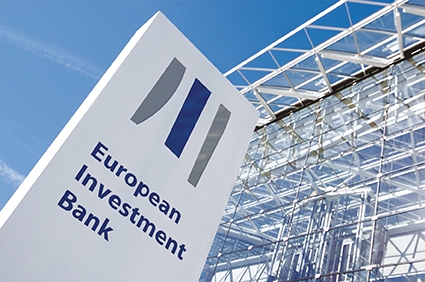A Decade of Success: EU Bank Marks 10 Years in Georgia with New Loans
The European Investment Bank (EIB) marked the tenth anniversary of its activities in Georgia with major new loans and a keynote speech by Vice-President Vazil Hudák at the 14th Batumi International Conference.
A EUR 250 mln loan, signed by EIB Vice-President Vazil Hudák in the presence of Georgian Prime Minister Girogi Kvirikashvili and European Commission Vice-President Maroš Šefcovic, will be used to upgrade Georgia’s priority road infrastructure. In addition, the EU bank increased its support by EUR 3.5 mln to finance the completion of rehabilitation works at Georgia’s largest hydropower complex, the Vardnili-Enguri HPP cascade.
In the framework of the Eastern Partnership Technical Assistance Trust Fund (EPTATF), an EIB expert based in Tbilisi and paid by the EPTATF will work with the Ministry of Regional Development and Infrastructure (Road Department) towards enhancement of the preparation and implementation of the large scale and technologically complex road sector investments financed by EIB in Georgia.
Delivering a keynote speech at the 14th Batumi International Conference entitled ‘Georgia’s European Way - Ensuring Regional Stability,’ Vice-President Hudák highlighted the successful cooperation between the EIB and Georgia, where the Bank has so far supported 21 projects with a total loan volume of over EUR 1.5 bn. A regional EIB office was opened in Tbilisi in 2015.
“In Georgia, we are marking ten years of activity this year; ten successful years since we signed our Framework Agreement with the government and started looking for projects in which we could invest,” Hudák noted. “Our ultimate goal is job creation, economic growth and improved living standards and the loans that we signed today go firmly in that direction.”
Maroš Šefcovic, Vice-President of the European Commission, stated, “The EU and Georgia are closely linked, notably through the Association Agreement and its economic pillar, the Deep and Comprehensive Free Trade Agreement. The EU's commitment to economic development, sustainability, and energy transition does not end at our borders. That is why the Energy Union is also an outward looking project which involves Georgia, an important partner of our Neighborhood Policy. Investment loans into transport infrastructure and clean energies such as that signed today are instrumental for Georgia and the whole region.”
“Ten years after entering Georgia, the EIB is set to become the country’s leading public sector financer and we strongly appreciate the existing cooperation with them,” said First Vice-Prime Minister, Minister of Finance, Dimitry Kumsishvili. “EIB’s activities are country-tailored and we believe that the EIB-financed projects will yield significant results. At the same time, the private sector is a key driver for growth, employment and innovation and we are looking to the EIB to increase the volume of operations in the private sector. The EIB has a lot to share with us - the DCFTA initiative and InnovFin being other examples.”
The EUR 250 mln loan is the second and last tranche of a EUR 500 mln framework loan for the construction and rehabilitation of approximately 253km of priority primary and secondary roads identified by the Georgian government for 2017-2020.
The project, which will include road safety elements, will enhance both international connectivity – notably on the East West Highway, part of the extended Trans-European Transport Network, and domestic mobility. This will strengthen vital links between Georgia, Ukraine and Europe through the Black Sea ports, and also to Armenia, Azerbaijan and Turkey. The project is significant particularly in the context of the EU-Georgia Association Agreement, which includes a Deep and Comprehensive Free Trade Area Agreement, helping develop more efficient, reliable and safe transport connections for the benefit of Georgian citizens.
The extension of the EIB’s support for the Vardnili-Enguri HPP cascade follows the EUR 20 mln loan provided by the Bank in 2010 in line with EU policy guidelines for EIB activities in the Eastern Partnership and supported by a EUR 5 mln grant from the European Commission. The additional EUR 3.5 mln in funding from the EIB will help to finalize a rehabilitation program concerning civil works as well as electrical and hydro mechanical works. This additional loan will provide assistance to secure the completion of a project that is expected to have a significant impact on Georgia’s hydroelectricity supply.
The EIB, the European Union’s bank, finances projects in Georgia on the basis of an EU mandate for the countries of the Eastern Neighborhood, the so-called External Lending Mandate (ELM). The 2014-2020 ELM provides for a total amount of Bank financing in the Eastern Neighbourhood of EUR 4.8 bn to support projects of significant interest to both the EU and Eastern Partnership countries in the areas of local private sector development, social and economic infrastructure and climate change.











